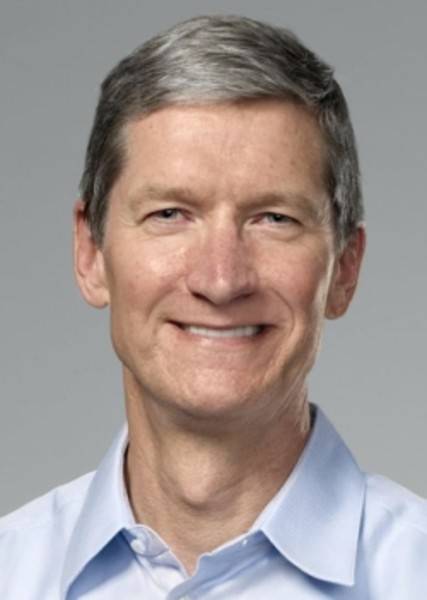While thus far, there’s general consensus that Tim Cook is doing, and may continue to do, a fine job at Apple stepping into the shoes of his lauded predecessor, Steve Jobs, there looms a bigger issue. There appears to be, at least in the public conscience, a lack of leadership and direction from the chief executives of corporations, including tech firms. And in fact, 2011 may be characterized as a year of misdirection from the head office.

Is this actually a problem; do Americans and Canadians actually need a CEO they can look up to? Or are CEOs typically glorified by virtue of a lack of deserving leaders in the public space? This American reporter discussed these questions with our favorite Canadian contributor, CTV News Channel analyst Carmi Levy.
I began our talk with a mention of perhaps the most colossal executive failure of the century thus far: the spectacular spinout of HP CEO Leo Apotheker, and his replacement by former eBay CEO (and former California GOP gubernatorial candidate) Meg Whitman.
Carmi Levy: HP’s leader disconnects from his markets, and then launches a strategic shift for the company that essentially destroys huge amounts of brand equity almost overnight, and throws the very future of the company into question and is ultimately sacked for it. Then the company is scrambling, and essentially grabs whoever it can to fill the role while it tries to limit the damage, and come back from what many have called a terminal injury.

Scott Fulton, ReadWriteWeb: I’m not sure that didn’t cause as much damage to HP as Apotheker’s about-face.
CL: But the end result here is that, a vacuum of leadership and a disconnectedness from its market led the company to essentially commit corporate suicide, and move to a next-generation leader almost as a knee-jerk reaction. Whereas in Apple’s case, it’s fair to say that the succession plan from Jobs to Tim Cook was years in the making, meticulously well-planned, cognizant of the fact that Tim Cook was not, is not, and never will be Steve Jobs, but also cognizant of the fact that that doesn’t matter in the overall scheme of things. A Tim Cook-led Apple, Steve Jobs knew, would be very different than the company that he founded – it would have a different style, because Cook’s style is different from Jobs’ style. Frankly Jobs was extraordinarily closely aligned with the brand to a degree that most CEOs could never even begin to imagine.
In the long run, HP – basically through ineffective leadership – has been skipping from one short-term decision to another, hoping to stanch the bleeding, while Apple has been methodically moving from one generation to another, recognizing that things will change but also putting the factors in place to ensure that the change is as positive and sustainable as possible.
RWW: I think what Apple is demonstrating, at least so far, is consistency of principle. I don’t think Tim Cook has any obligation to be the next Steve Jobs, if you will, nor do I think he should waste his time trying. But insofar as the company remains on the course it is on, and is perceived not as deflecting or yielding or changing course, then I think Tim Cook will be known as somebody who’s doing the job, and I think he’ll be appreciated for that. And I don’t see any reason why he won’t.

CL: That’s right, and that’s why I think now, in the short term – and Tim Cook knows this – it’s not in his best interests to make any radical changes in direction, that essentially we are in a “stay-the course” phase for the company. It will continue along the path that Jobs had laid out for it, because it still has a years-long pipeline of products to exhaust that were incubated under Steve Jobs’ watch. So why would you change course now when you can simply ride out what’s already been determined for you, for years to come?
Once that period is over with, then Cook can begin to think of ways of diverging from the past, and identifying new areas and markets that previously didn’t exist, but Apple will seek to fill. It’s conservative for now, but longer term, Cook will have an opportunity to cement his hold on the reins of power, as will Jonathan Ives and all the other senior members of Jobs’ leadership team who have been toiling in the background, relatively anonymously, for years and now have an opportunity to begin to rise to the forefront somewhere.
RWW: But even as that change of strategy comes about, Tim Cook’s going to have to be very careful, especially in this environment, because we’ve seen cases where a CEO demonstrates long-term leadership and focus, a brash, take-no-prisoners approach to competition. If it comes in the wrong package, people will reject it. And I’m referring here to Carol Bartz. I challenge people to tell me exactly what she did wrong at Yahoo, because I’m not sure I know. Compared to her predecessors, for God’s sake!

CL: She was trying to right the ship her predecessors pissed away, how much value? Unreal.
RWW: And in ousting her and getting her out of the picture and feeling all better for it, the first partnership you announce out of the gate? ABC News, you’re a content partner again? What year are you guys in? We’re in 2011!
It’s astonishing to me that, when we see certain people with some of the quality that Steve Jobs undoubtedly had, we reject them out of hand because they stand against the tide. Their “hell-no-ness,” if you will, gets on our nerves. I dare say, especially if they’re women. And that’s a little sexist.
CL: Absolutely, even in 2011 there’s a huge double-standard applied to the gender roles of leadership. Typically men can get away with behaviors and outcomes that would normally have a woman shown the door almost immediately. It’s very clear that, even though the glass ceiling has been somewhat breached, it’s far from completely disappearing and it still represents a barrier to true advancement. Which is a sad story for business, and sad story for tech because here you have all this talent which is not being leveraged. You’re limiting your talent pools to half the size of what they really should be, and it’s entirely fair to ask the question, “Does this help competitiveness?” And the only answer there is, clearly, no it doesn’t.
Everybody’s been asking since Jobs passed away, “Is there another Steve Jobs?” Truth of the matter is, no, there is not. However, there are other incredibly talented individuals who can be successful in their own way by following their own path. But we do ourselves a disservice by perpetuating a business landscape that makes it difficult for half of all participants to advance themselves.
RWW: We need that leadership principle. We need someone who can stand up for something we all believe in as a group, and for whom we can say, “Yea, I’m with her!.” Someone to rally behind. Frankly, one of the reasons Steve Jobs was so good at it was, let’s face it, no one else was. Who did he have to compete with in that regard? He rallied people because no one else rallied them. This was true for the latter part of the ’90s, the early part of the 2000s. And who have we got now? Folks who, when they do try to say something at a keynote speech, [like Salesforce.com CEO Marc Benioff] they get booted out and have to do it next door at the restaurant!
CL: Really, the question is, who is that visionary? And the unfortunate answer is, no one.
When John Lennon died, it’s not like other musicians stepped into the void and became the voices of that generation. He was the voice, and when his voice was silenced, only silence ensued in his wake. And we’ll see the same thing with Jobs here. There is no one to immediately take over; however, the lessons of his life, the current generation of leaders and certainly the future generations of leaders would do well to study the lessons of his life and try to at least incorporate some of the best practices that he espoused, into their own performances and the way they run their own companies, as well as themselves. That’s easier said than done, but look: If you aspire to be not just a leader but a truly great and inspirational leader, part of your mandate and your accountability is to learn from those who have gone before and those who consistently hit it out of the park. Part of Jobs’ legacy is, he will be an example to future generations of leaders for a very long time to come, in much the same way that technologists and inventors have been looking at Leonardo da Vinci and Thomas Edison’s work for guidance and reference, Jobs now joins them on that pedestal.
RWW: Let’s project ten years out. Is there a scenario in your mind where you see a place on the planet of processing, networking technology for another new player on the order Apple, Microsoft, Google, Cisco, Oracle? Or do we see pretty much the geography of the planet as it’s going to be for all time?
CL: History proves to us that new players are constantly game-changing entities, and game-changing leaders are constantly being incubated and evolving and growing. The Google of tomorrow probably hasn’t been invented yet, but rest assured that it will arrive at some point. Eventually some company will rise up and take over from Apple as the leader of all things inspirationally technological. This is a business that prides itself on re-inventing itself on an almost constant basis. Steve Jobs or no Steve Jobs, Apple or no Apple, that process will continue relentlessly. The past 14 years of Apple’s life and the ending of Steve Jobs’ life are just milestones in that larger, higher-order process.





















